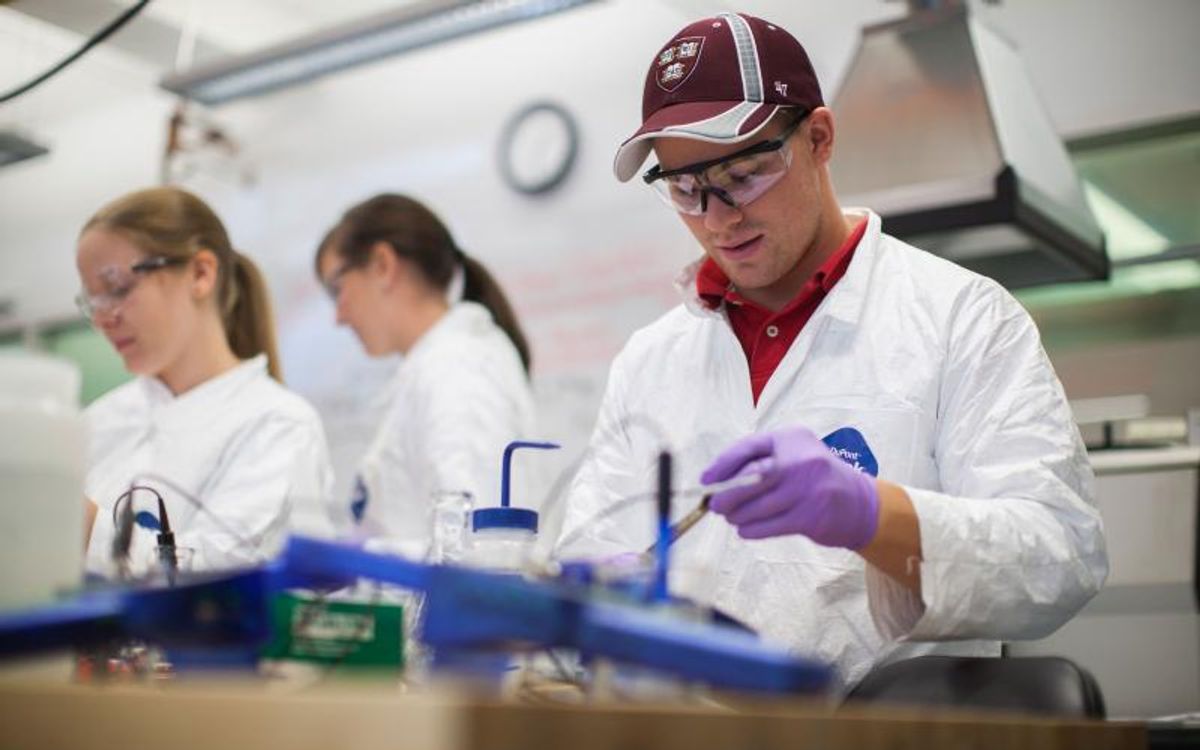
A Data-driven Way to Find Your Perfect Research Opportunity on Campus
How does one navigate on-campus resources to find research opportunities at Harvard? How has COVID affected this dynamic?
Introduction
As the days get shorter, the nights get colder, and the fall semester draws to a close, we are approaching the start of a new season - research hunting. Eager first-years (like the author) are told at the beginning of the school year that most students start research on campus during their Freshman summer or, at the earliest, their first spring term. This way incoming students get acclimated to the stress of Pset-heavy classes and hauling laundry to the Thayer basement before taking on important commitments like research positions. But how does one go about finding these opportunities and are there resources available to increase the likelihood of a student conducting their dream research project? Likewise, taking into account the ongoing pandemic, has access to such opportunities been hindered in the past year and have virtual projects affected students’ encounters with research? I asked these and other research-related questions to 57 current undergraduates who do and do not have college-level research experience. By understanding the different ways students engage with the research process on campus, we can better understand the range of opportunities available to students and ensure that students who are excited about conducting research on campus have the chance to do so.
So, if we want to conduct research, when should we start?
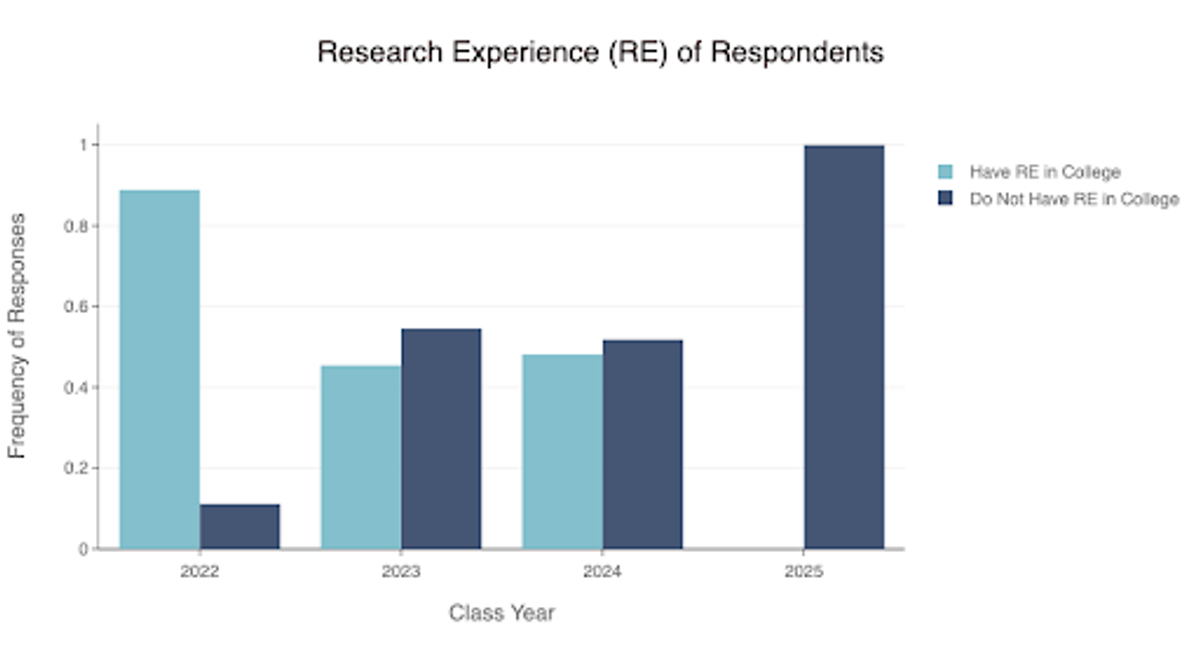 Figure 1: The Research Experience (RE) of Respondents compared to their Graduating Class Year. Note that the frequency of responses is relative to the number of total responses received for that specific class (9 Seniors, 11 Juniors, 27 Sophomores, 10 Freshmen).
Figure 1: The Research Experience (RE) of Respondents compared to their Graduating Class Year. Note that the frequency of responses is relative to the number of total responses received for that specific class (9 Seniors, 11 Juniors, 27 Sophomores, 10 Freshmen). It’s clear from the survey results that as students progress in their academic journey, the likelihood of them conducting research increases. Surveyed seniors were more likely to have college research experiences (or REs) than first years, while junior and sophomore respondents have similar amounts of REs (but still more than first years). It is important to note that some senior and junior respondents did not have any research experience, and respondents had noted that they were not interested in pursuing a research opportunity in the future (as we will see with upcoming data sets). Therefore, students should not feel pressured to have completed a research project by their graduating year and there is no expectation to have done so.
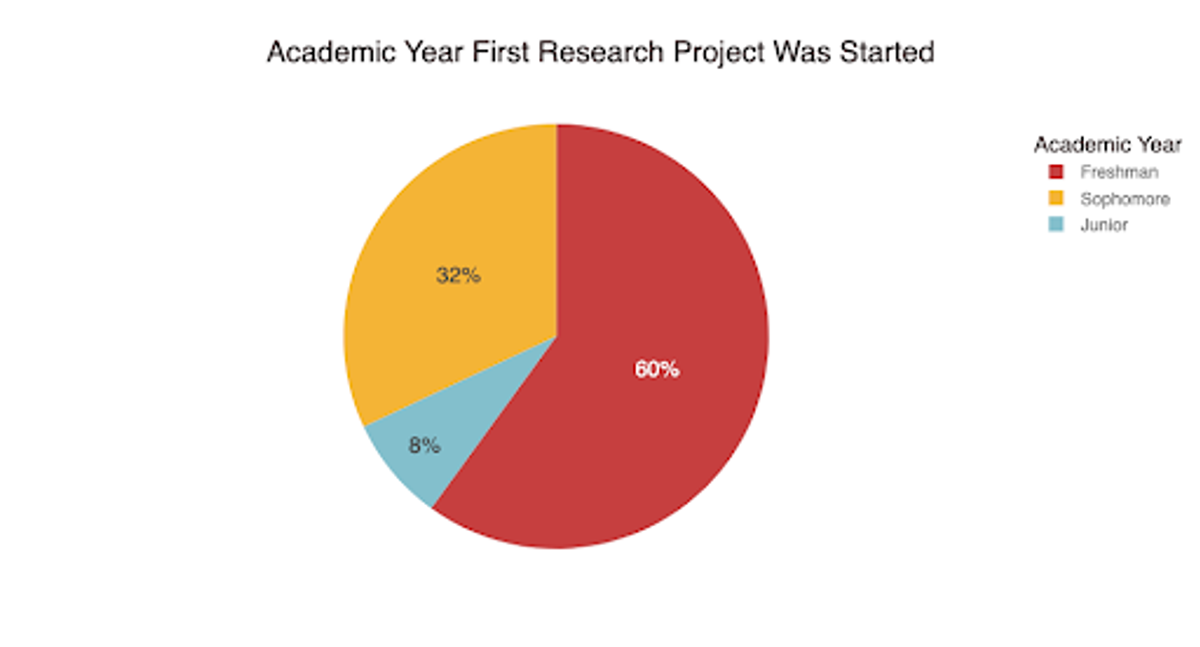 Figure 2: The First Academic Year Respondents had conducted their REs (if they had REs). Freshman year is the most popular time to start REs, but students had begun even in their Junior year.
Figure 2: The First Academic Year Respondents had conducted their REs (if they had REs). Freshman year is the most popular time to start REs, but students had begun even in their Junior year. However, as shown in the next figure, a few students started their first research project only in their Junior year. So, for those students that may want to explore other options and get involved in the research sphere later in their academic careers, there are definitely opportunities to do so. It seems though that students are more likely to begin their first project Freshman year.
But how do we find these opportunities?
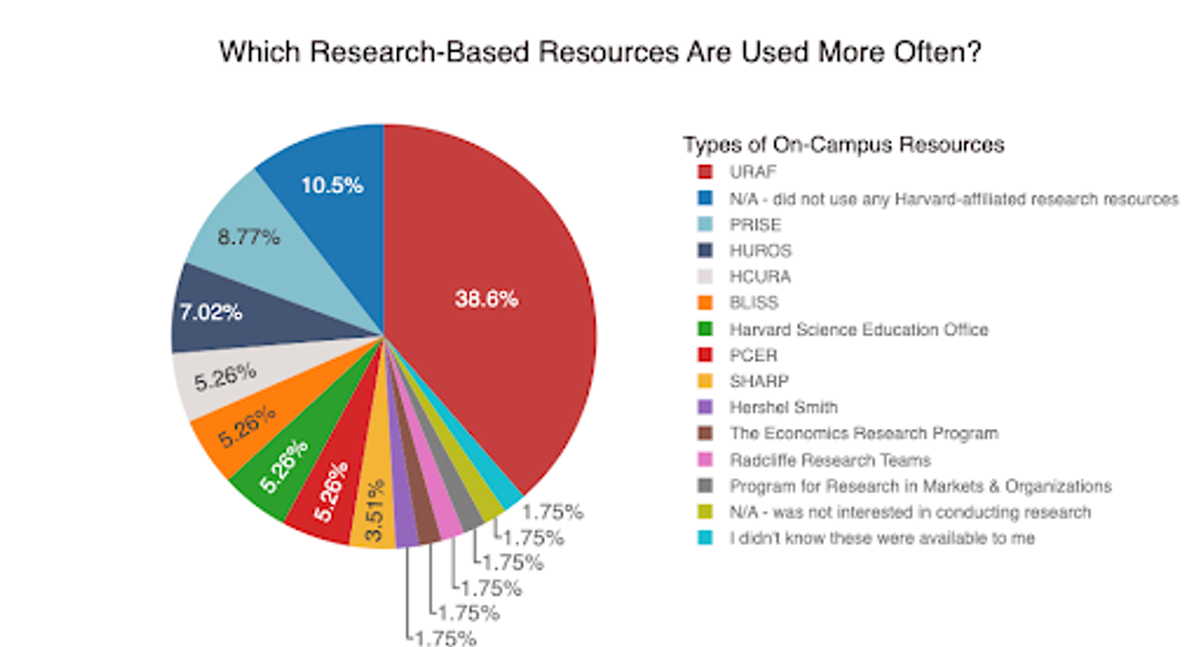 Figure 3: Types of On-Campus Resources Available to Students and Respondents’ Use of Such Resources. URAF was the most popular on-campus resource.
Figure 3: Types of On-Campus Resources Available to Students and Respondents’ Use of Such Resources. URAF was the most popular on-campus resource.From paid, job-based applications to credit or volunteer-based projects, students have a wide variety of research opportunities that they can choose from to best fit their needs and interests. While navigating these resources can be difficult, there are many support systems and initiatives on campus that can help students in their research journey. Harvard’s Research page has a list of programs that are geared towards matching students with mentors and funding opportunities for various fields. I surveyed all of the respondents to see which of these resources were the most helpful in connecting them with their desired research opportunity and/or generally learning more about research on campus. I also left space for students to fill in other opportunities that were not mentioned and to share what helped them in their research journey. Students tend to rely on the URAF department the most (38.6%) to learn more about research on campus, with various summer programs and research fairs on campus also gaining traction among students. Yet the relative specificity of these programs could have also affected their frequency of reported use (with PRISE being geared towards STEM students and SHARP towards concentrators in the Arts and Humanities, for example). However, there is a sizable number of survey respondents (10.5%) that did not use any of the shown resources and one respondent noted that they were not aware such opportunities were even available. Hopefully, you will be able to refer to this list in the future and look out for more wonderful research opportunities on campus!
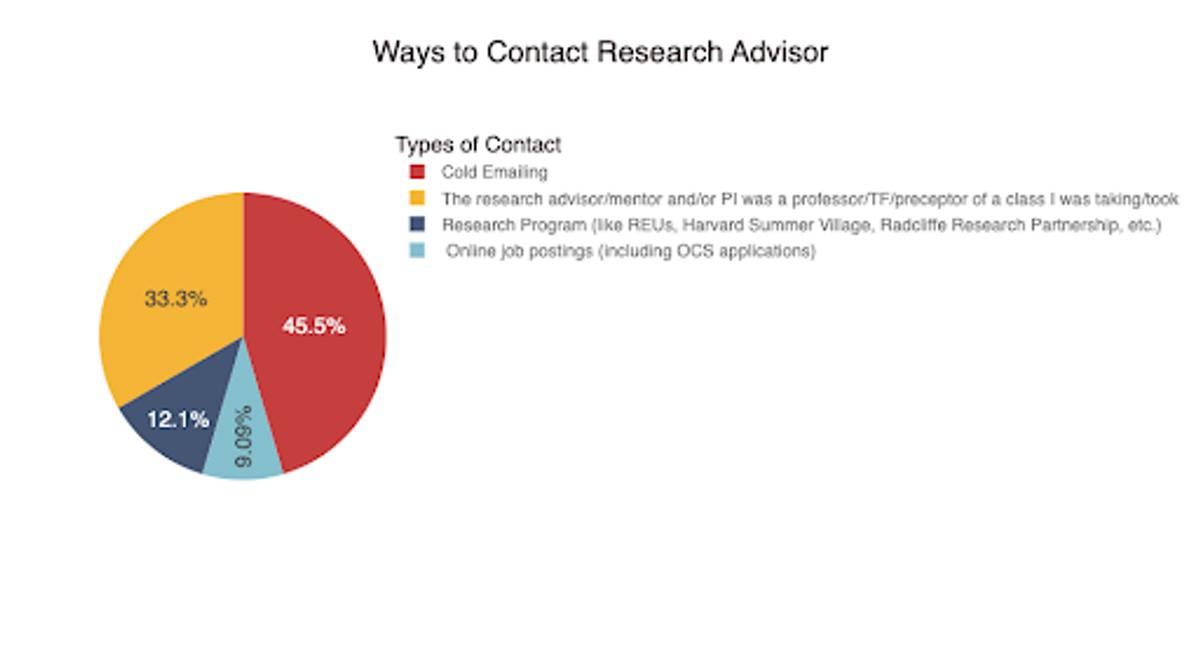 Figure 4: Different ways to Contact a Research Advisor (including through the aforementioned research programs). Cold emailing and contacting the instructors in classes students enjoyed were the most popular options.
Figure 4: Different ways to Contact a Research Advisor (including through the aforementioned research programs). Cold emailing and contacting the instructors in classes students enjoyed were the most popular options.Even if these opportunities do not work out, there are plenty of other ways to find research mentors on campus to help guide you through the research process. Of the respondents that had research experience, only 12% got in contact with their research advisor through one of the aforementioned research programs. Close to a majority (45.5%) of students had actually found their research advisor just by cold emailing and expressing their interest in the mentor’s work. Many students even had prior contact with their research advisor through the classes they took, with 33.3% of respondents noting that their research advisor had once been their professor, teaching fellow, or preceptor.
What if I don’t have research experience?
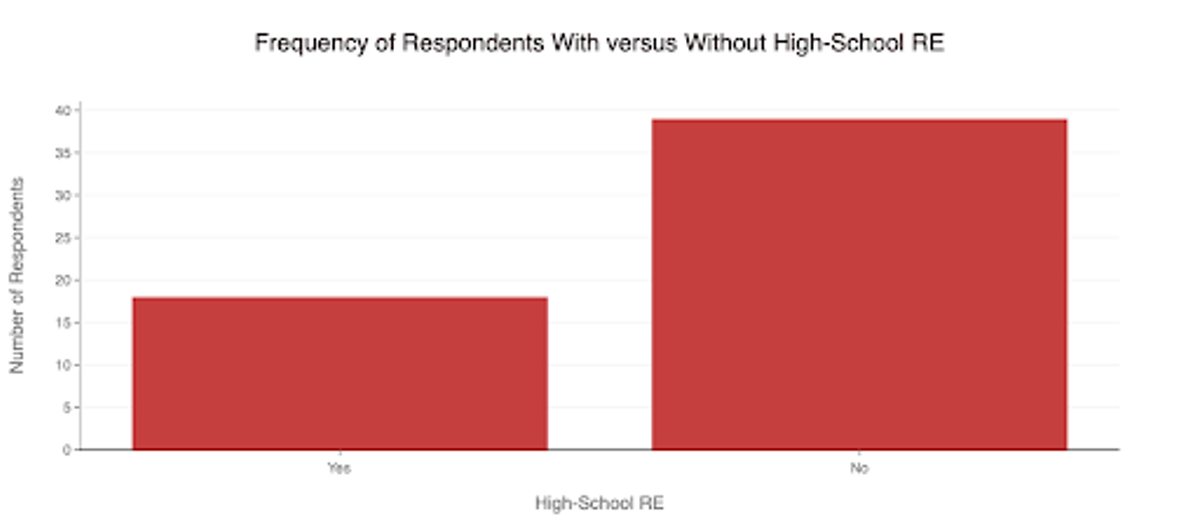 Figure 5: Number of respondents that had and did not have REs in high-school. Regardless of their college RE, overall students tended to not have RE in high-school.
Figure 5: Number of respondents that had and did not have REs in high-school. Regardless of their college RE, overall students tended to not have RE in high-school. Some research projects may have certain prerequisites students need to meet before joining, but there are just as many that are willing to teach students such skills during their research experience. In fact, it is expected that students would learn something new when working on a project, which is what makes research so exciting in the first place. When surveying respondents about whether they had RE in high-school before coming to college, it is shown that the majority did not (Figure 5). Therefore, do not worry if you did not participate in research in high-school before coming to Harvard; chances are most of your fellow classmates did not either, and your future opportunities will not be hindered due to the lack of such chances in the past.
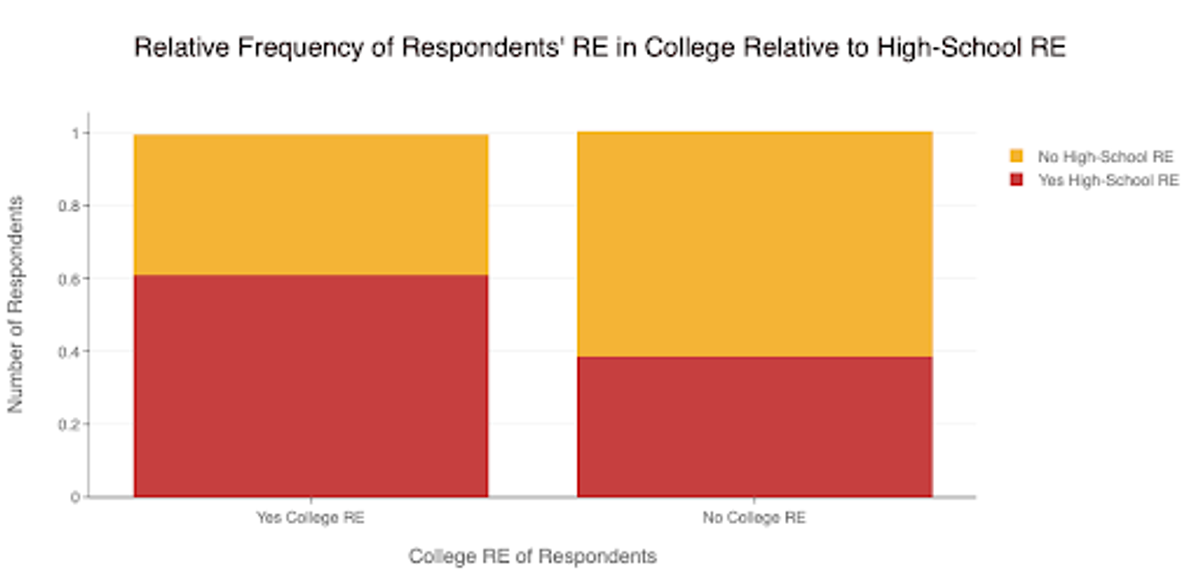 Figure 6: RE of Respondents in College versus their High-School REs. Students with College REs were more likely to have High-School REs than those without College REs. Note that this figure is based on the relative frequency of the responses so the number of different responses is represented as a percent of the total number of responses.
Figure 6: RE of Respondents in College versus their High-School REs. Students with College REs were more likely to have High-School REs than those without College REs. Note that this figure is based on the relative frequency of the responses so the number of different responses is represented as a percent of the total number of responses.However, this does not mean that having RE from high school is not beneficial in the research environment in college. Respondents with college RE were more likely to have high-school RE relative to students who did not, demonstrating that high-school RE does have some correlation with college RE (Figure 6). Thus, students with high-school RE might already feel more prepared and ready to start research projects when they come to campus. But this does not necessarily demonstrate a causal relationship between high-school and college RE due to the relatively small size of respondents with both REs in the first place.
How does the pandemic affect the accessibility of REs?
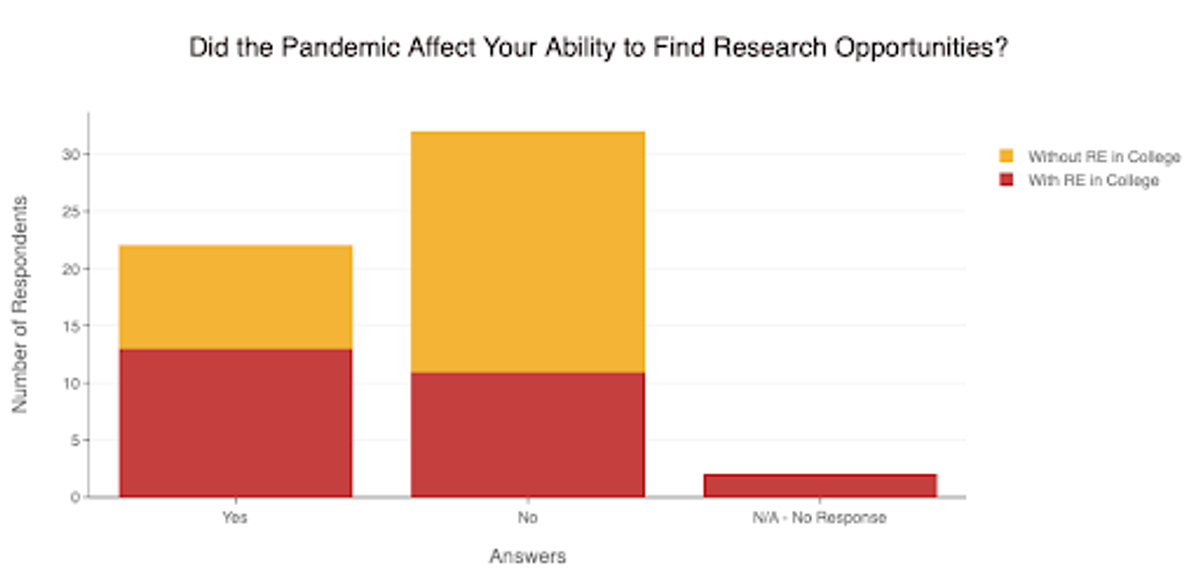 Figure 7: The effect of the pandemic on students’ ability to find research opportunities. Most students’ plans were unaffected (given that a large portion were already not interested in pursuing research opportunities during that time period/at all), but for those who had difficulty finding research opportunities, they were more likely to have had REs in college already.
Figure 7: The effect of the pandemic on students’ ability to find research opportunities. Most students’ plans were unaffected (given that a large portion were already not interested in pursuing research opportunities during that time period/at all), but for those who had difficulty finding research opportunities, they were more likely to have had REs in college already.It’s important to consider that the responses of this survey were given during the COVID-19 pandemic period where the uncertainty of events affects the ability of students to conduct research in a typical manner. Many students who had research opportunities lined up were forced to move into online environments to complete such work, while others were unable to find such resources due to these changing conditions. Yet for the students surveyed, many did not find the pandemic affecting their ability to find research opportunities. However, it should be noted that 5% of the respondents were not interested in conducting research during that time in the first place and even more (14%) were not interested in conducting research projects at all. Of the students that were affected in their ability to find research opportunities, they tended to be students who already had research experience in college, which could be due to cancellations of projects they had previously lined up.
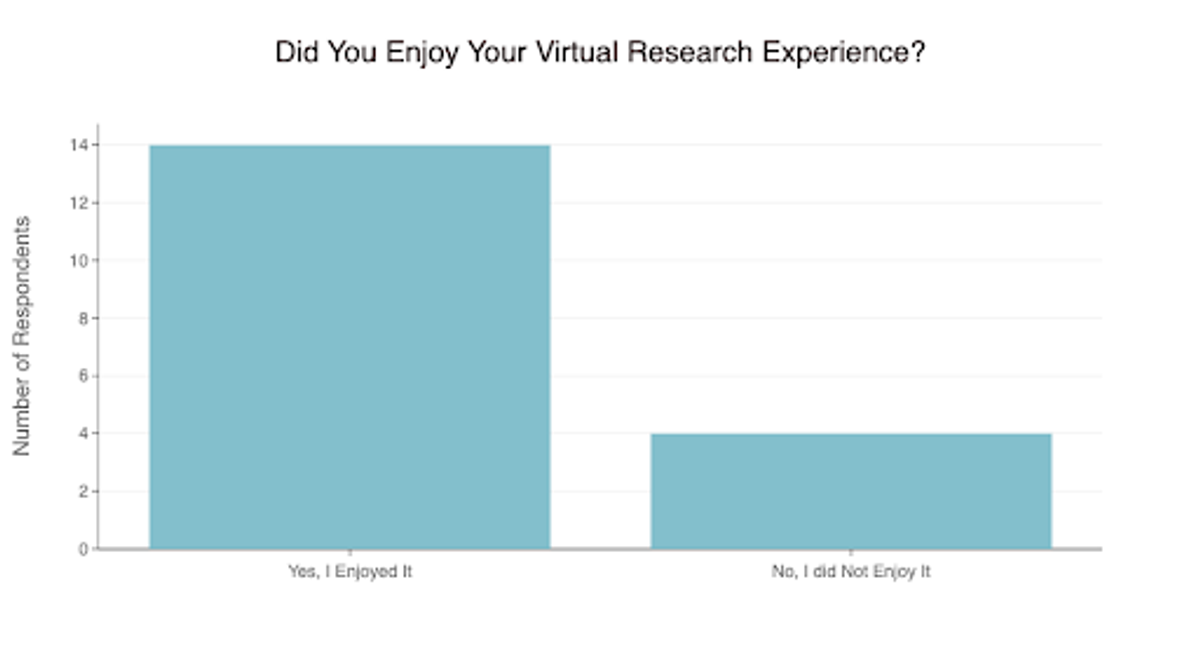 Figure 8: A visualization of students’ enjoyment of their virtual research experiences. Despite the non-traditional setting, the vast majority of students still enjoyed themselves.
Figure 8: A visualization of students’ enjoyment of their virtual research experiences. Despite the non-traditional setting, the vast majority of students still enjoyed themselves.Fortunately, for the 18 respondents whose research was moved to a virtual environment, 78% still enjoyed their experience, showcasing that even in the case that these in-person research experiences are interrupted, there is still an opportunity to continue to enjoy such projects in a virtual setting.
Conclusion
It’s important to note that the previously gathered data are based on a relatively small sample of current undergraduate students (57 respondents) and that these individual experiences cannot be generalized to everyone’s encounters with research at Harvard. However, these results should still shed light on the broad range of opportunities available to students to pursue research at Harvard and provide some insight on how to get started. Research at Harvard is an exciting and inspiring space to be a part of, so I hope that my research on it can better support you on your own research journey.
